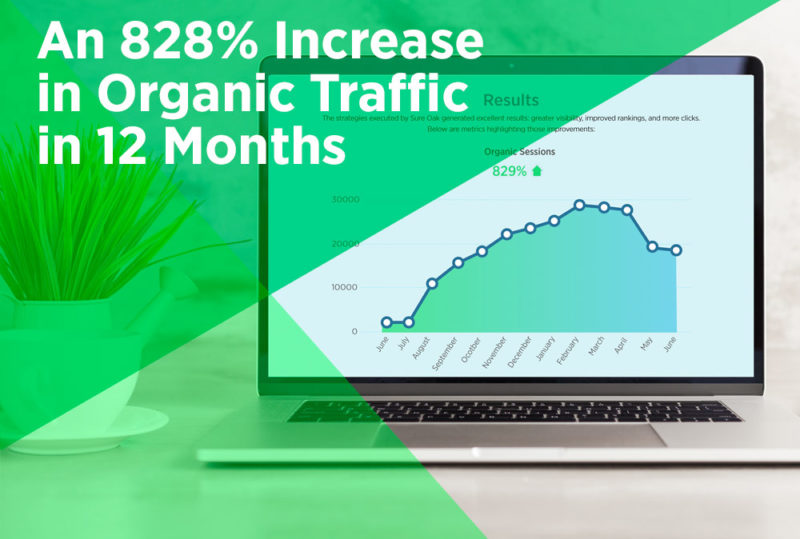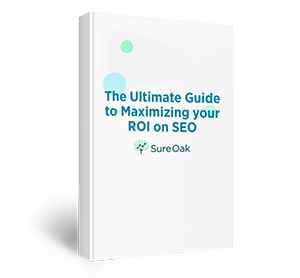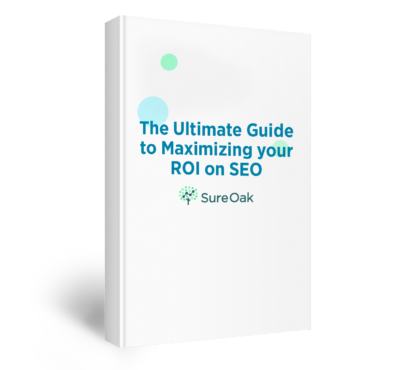Let’s say it upfront: SEO can be hard for startups.
Ads are easy enough to buy, but SEO is an involved process, almost closer to a craft. Doing it correctly requires intense strategizing, consistent work, and time.
But the payoff can be huge. Serious SEO efforts may not show results after the first month but after six months, you’ll start to see traffic directed towards your site. It is a long-term investment that pays enormous dividends over time.
And better yet: it’s significantly more affordable than conventional social or influencer marketing.
For cash-strapped startups looking to get a foothold in a given market, few tactics are more effective for generating customers and general awareness.
Should You Consider Investing in SEO for Your Startup Business?
The answer here should be obvious by now: yes, absolutely. The benefits of SEO for startups cannot be ignored.
Just think about your own experience. When you’re looking for new shower curtains or garden shears, do you have a specific brand in mind? Or do you—like most consumers—take to Google and start browsing around?
The fact is that most online purchases—likely the majority of them—are made by people who had no specific product or service in mind when they start their search.

Given that reality, ranking higher in search results could not be more important. Because ask yourself: when’s the last time you made it to page three or four of a given Google search (let alone page five or six)? Intuitively, consumers tend to assume—in many cases correctly—that the results on the first page (and maybe the second) are the best available options for whatever they’re looking for.
A high SERP ranking for a given keyword creates instant credibility in the mind of a consumer. It’s an unofficial stamp of approval, a signal to the consumer that your brand can be trusted, for the simple reason that others have trusted it too.
SEO Is Cost-Effective
As anyone who’s worked in marketing knows, non-organic traffic can be outrageously expensive to generate and (often) not as effective as one would like it to be.
Hence the beauty of SEO: it’s indirect. You’re not explicitly exchanging cash for eyeballs. Instead, you’re improving your core product and its visibility, and organically increasing traffic as a byproduct.
SEO, done properly, can generate traffic at a scale that would otherwise cost hundreds of thousands, if not millions of dollars, to buy non-organically. And this process is self-perpetuating. The better your SEO operations, the more likely you’ll be rewarded with higher search rankings. The higher you are on the SERPs, the more organic traffic you’ll likely receive. Once it’s set in motion, this virtuous cycle keeps on paying dividends.
SEO isn’t free, of course: it involves a whole suite of strategies, which we’ll get into later in this post. But it is far more affordable than other kinds of advertising while yielding comparable (and very often better) results.
Your Competitors Are Doing It
Some people will try to tell you that SEO is dead. This contention can be easily disproved by one single fact: everyone is still doing it, including your competitors.
This is the important part. Your product or service can be better than your competitors in every particular. You can have the best, most dedicated team in the business working around the clock to provide the best customer service imaginable. But if you’re not showing up in the search rankings, it won’t matter.
For an analogy, let’s say you’re looking for a pair of pliers at a hardware store. Let’s also say you’re in a rush. If one pair of pliers is prominently displayed in the front, while another pair of pliers is located on a high shelf all the way at the back of the store—well, which pair of pliers do you think you (and most other people) are going to end up buying?
You can skip SEO if you want—but in all likelihood, it will lead to consumers skipping your product, too. Page five or six of any given search ranking is a no-man’s-land—you might as well be on page one thousand.
The SEO Market Share Is Growing
Another obvious indication that SEO is as important as it’s ever been is that the SEO market is growing at an astonishing rate—up to $63.19 billion in 2022 compared to $51.74 billion in 2021.
The reasons for this are no surprise. Increasingly, life is lived online. This was true before the pandemic, and it’s truer today. Word-of-mouth and conventional advertising still matter, of course, but search engines are more central than ever to the way people discover things. So it’s no surprise that, by 2026, the market is expected to reach over $134 billion, more than twice what it is today.
And keep in mind that e-commerce and SEO are very closely tied: one could barely exist without the other. With the e-commerce market growing to $870 billion during the pandemic, you can start to see why SEO is more important than ever.

SEO Tips for Startups
So we’ve established why SEO matters for startups. The question now is how to get a viable SEO operation off the ground.
This is trickier than it may first appear. Best practices for SEO are constantly in flux, as search engines like Google revise their policies in an effort to connect customers with the best possible results.
Back in the day, spammy tactics reigned. Websites were stuffed with as many keywords as possible; backlinks were acquired indiscriminately; low-rent content farms sprung up to host guest posts designed specifically to game the system.
Today things are different. Google has implemented countless new rules, and accordingly, the prevailing phrase today is quality over quantity. Yes, you want to get as many eyeballs as possible on your site—but you want to do so ethically while providing an actual service to your existing and potential customers.
Below, you’ll find some best-practice SEO tips for startups to guide you as you get started on your SEO journey.
1. Make Sure That You Set Up The Right Goals
As anyone who’s embarked on a project of self-improvement can tell you, you need to have specific, realistic, targeted goals before you can actually get anything done.
This might look differently for other companies. SEO for tech startups might look different than SEO for publishing startups. For instance, since publishing startups make most of their income from advertising and affiliate marketing, their goal might be solely to increase organic traffic and pageviews. Meanwhile, if you’re a tech startup, you might be more focused on conversions and revenue.
Getting your site to rank higher for certain keywords is a noble goal, but it’s not the only goal—there are a variety of ways that a successful SEO campaign can play out, and you should be attentive to these before you begin your campaign.
2. Do An Analytics Cleanup
Of course, if you want to actually measure how your SEO campaign is doing, you’re going to want the best data available. And that’s where your analytics cleanup comes in.
To begin with, you should be using Google Analytics—for startups, Google Analytics is an invaluable tool.
But what do we mean by ‘analytics cleanup’? To start, you should filter out the IP addresses of people who work for your company, so you can distinguish routine internal visits from actual organic traffic.
You should also organize your pages into content groups, so you can clearly measure what kind of content is performing best (and where it might be wisest to allocate future SEO efforts).
These are simple steps, but they can help to give you a much clearer picture of how your campaign is going.
3. Make Sure Your Website is Technically Sound
Here’s a useful statistic: according to Google, a user’s bounce-rate increases by a full 32% when it takes a page 3 seconds to load. And that number increases to 90% when it takes a page five or more seconds to load.
The lesson here is obvious: page load speed matters enormously, and you should be continually testing your site’s pages to ensure that everything is in working order.
You should also make sure to use HTTPS, as opposed to HTTP, as Google might block your site in Chrome if you use the former. Also, make sure to search for and fix any crawl errors.
Again, these are small things—but they make a massive difference from an SEO perspective.
4. Use Keywords That Resonate With Your Audience
Here we come to one of the all-important tenets of proper SEO: keywords.
Your keywords are your roadmap—they’ll guide every part of the SEO process, from link building to on-site optimization.
Obviously, you’re going to want to make sure your keywords are relevant. More importantly: you’re going to want to make sure they’re specific.
Just how specific will depend on the market, you’re operating in. If you’re selling luxury candles, for instance, you’re not going to get very far with ‘luxury candles’—the pre-existing market is likely too big for you to effectively dent it at the beginning. But you will have success if you pick specific keywords—say, ‘soy wax candle,’ ‘saffron and cedar wood candle,’ etc.
Targeting lower-competition keywords like these gives you a better shot of standing out when you’re an early-stage startup and don’t yet necessarily have a high Domain Authority or many backlinks.
By the way, this process can be effectively reverse-engineered: if you pay close attention to the keywords that are already guiding people to your site, you’ll have a solid sense of what terms to focus on. It’s also worth studying the keywords your competitors are targeting and making an effort to focus on them as well.
5: Make Sure Your Content is High-Quality
It’s worth pausing here again to talk about how SEO has evolved over the years. Google, today, is focused on quality above all: they want to make sure they’re guiding their users towards legitimately useful, non-spammy content.
What does that mean, from a content perspective? Simple: you should be producing content that people actually want to read. Content that provides a service beyond simply gaming the system to get people to your site. That doesn’t mean you shouldn’t be integrating your keywords into each post—but it does mean you should be doing so organically, without interrupting the flow of the text.
A big part of the process here, of course, is doing your research. Search your target keywords and see what kind of content is ranking for them. Ask yourself: what can I do that those articles aren’t doing? How can I provide even more value-add for a potential reader?
Really make an effort here. Incorporate statistics and research or even conduct studies of your own. Develop a consistent voice that aligns with your brand. And make sure at all times that you’re pitching yourself towards your pre-established buyer persona. Identify their wants and needs and strive to meet them with your content effectively.
6. Use On-Page Optimization Tactics
So you’ve selected your keywords and started generating relevant content—now you’re going to want to make sure that Google can actually find you.
The idea here, essentially, is to optimize your website so search engines like Google won’t have any trouble understanding and indexing your page.
What you should be striving for here is maximum readability. Headlines should be clear and direct. Every article should contain multiple relevant subheads and bullet points. Whenever possible, sentences and paragraphs should be kept short. Custom images can also be a great help here, adding visual interest to your piece and potentially helping when it comes to search rankings. These are all critical components of SEO strategy for startups.
And while title tags and meta descriptions may be less important for overall SEO than they were a few years ago, they can still absolutely help and should not be neglected.
7. Improve Your UX
If you’re hosting an event, you’re going to want to tidy up the space beforehand.
The same logic applies to UX. The idea is to be a gracious host. You don’t want to annoy your visitor with countless pop-ups. You don’t want them to get lost trying to find this or that piece of information. From the consumer’s perspective, the experience should be effortless, even fun.
That means making sure the homepage is accessible from every point on your site. It means making sure your search box is easily findable (and that your search functionality actually functions). It means making sure every aspect of your website is cleanly labeled and findable. And remember load time matters!
And while CTA pop-ups can be an effective tool, especially for email sign-ups, you should use them sparingly, and should also make sure that users can easily X out of the pop-up if they’re not interested.
8. Don’t Overlook Mobile-Friendliness
According to Pew Research, 85% of Americans now own a smartphone. And as of November 2022, fully 60.28% of all web traffic—i.e., most of it—comes from mobile. In other words, if and when consumers find your site, they’re likely going to do so on their phones. Accordingly, Google now uses mobile-first indexing meaning mobile optimization is critical for ranking.

Many of the things we discussed about good UX in the previous section go double for mobile. Navigation should be even simpler: ‘hamburger’ menus are always a good idea here (i.e. three vertical lines in the top-left corner that users can click on to quickly move through your site). And given the smaller screen space, pop-ups and advertisements should be even less obtrusive.
You should also make sure your font is properly-suited to mobile—you don’t want people straining their eyes or zooming in and out to read your text.
9. Build Relevant Links for Your Site
Late in 2022, Google’s John Mueller suggested that link building might be less relevant for search in the years ahead. Despite the prediction (which has happened before), link building is here to stay for quite some time yet. Be sure to check out our post on why link building is still effective to hear why. For now, the fact remains that link building for startups is as important as it’s ever been for SEO.
From an SEO perspective, proper link building helps with just about everything. It improves organic rankings; increases brand authority; and sends those invaluable trust signals to Google, the signals that say: this site is important in its space.
Of course, there are good and bad ways to approach link building. A bad approach would involve indiscriminately placing links on as many sites as possible, regardless of relevance or quality—say, a knitwear company getting links on a site for real estate professionals, or a cookware company getting links on a health insurance site.
Certainly, there are many who used to approach SEO that way. But—in what you might have noticed by now is a consistent theme—times have changed, and quality always beats quantity. When building links, you should always have your eye on relevance. If you sell electric toothbrushes, focus your efforts on dental care sites. If you sell high-end waffle makers, focus your efforts on cooking sites.
As always, let relevancy and quality guide your SEO efforts.
10. Set up a Google Business Profile (If You Are a Local Business)
In a sense, startups serving a specific location are lucky, SEO-wise: they can work directly with Google to improve their rankings.
If you’re a local business of any kind, it is always a good idea to start a Google My Business account and to vigilantly maintain it. If Google can verify your business, it can help enormously with search results. Getting your business on Google search is a must in order to generate visibility.
Think about it: in the mobile-first era, ‘near me’ searches are ubiquitous—’pizza near me,’ ‘hardware store near me,’ ‘sneakers near me,’ on and on and on. In fact, according to Google itself, fully 30% of searches are related to location. By setting up a Google My Business profile—and keeping it updated with accurate information—you significantly increase your odds of surfacing in searches like these.
How Sure Oak helped other businesses
For years now, Sure Oak has been confidently guiding businesses of all kinds through every step of this process—and garnering massive results in the process. Some recent successes:
- We helped a tool review website increase organic traffic by 81%
- We helped a digital publication focusing on anonymous stories increase its organic traffic by 828% in just twelve months
- We helped the dessert company Milk Bar increase its revenue by over 113% in just two months
- We helped the pet insurance company Bivvy increase its organic traffic by a staggering 724% and increased its number of referring domains by 29x
Of course, this is just a small smattering of the work we accomplish day in and day out. SEO best practices may be constantly shifting, but we work hard to stay on top of them—and our results speak for themselves.
Should you do it yourself or hire a specialist?
The fact is that most startups are overstretched just handling their day-to-day business affairs. SEO done right may be affordable, but it’s also time-consuming—and time is maybe the main thing that most startups lack.
For that reason, if you’re looking to grow your startup online, outsourcing your SEO operations to dedicated specialists is usually the best move. You can focus on what you do best—optimizing your product or service—while feeling confident that your SEO efforts are in competent hands.






